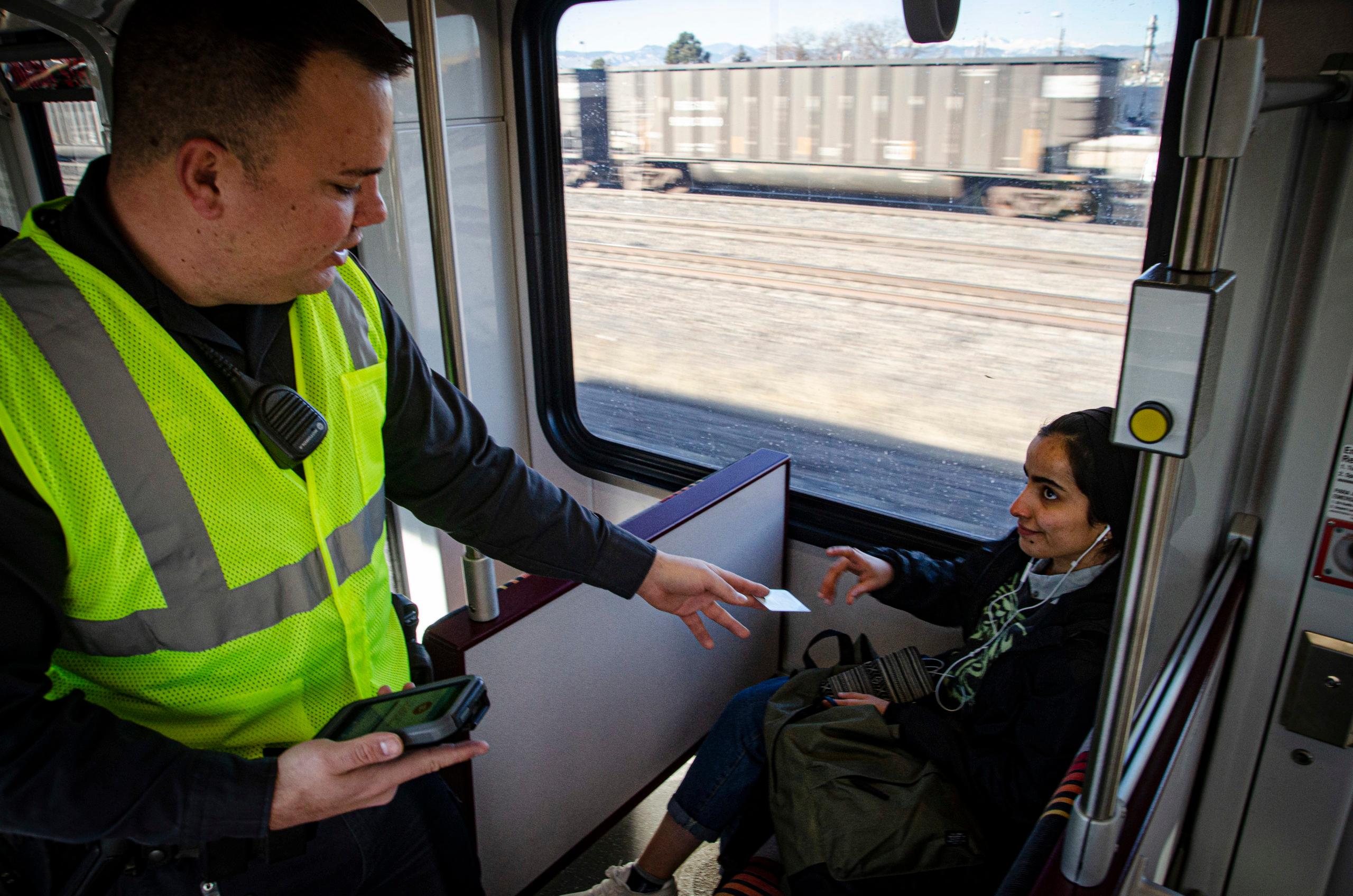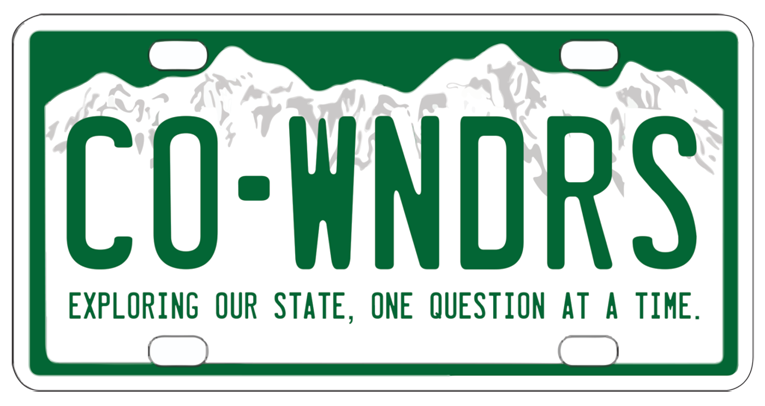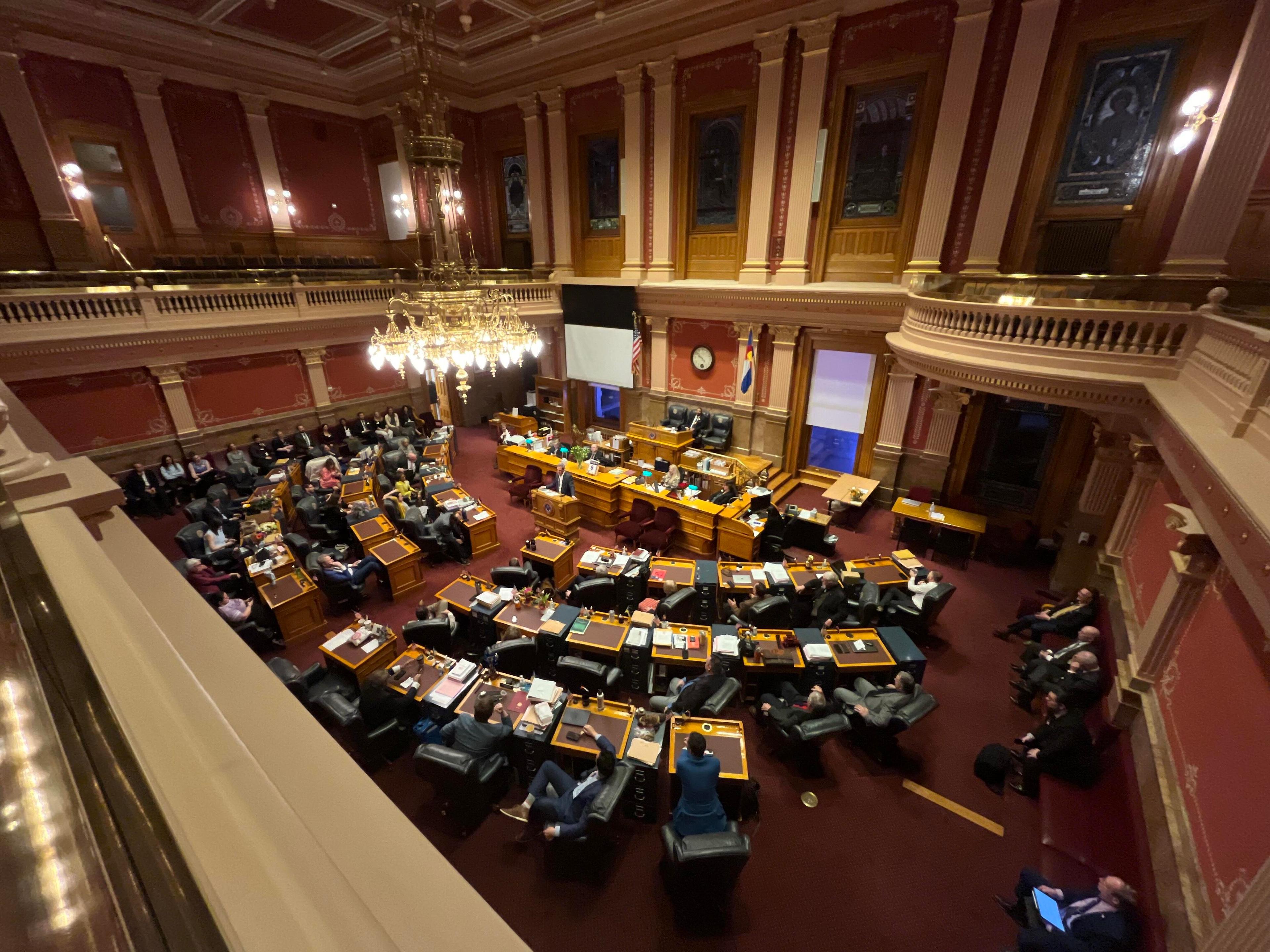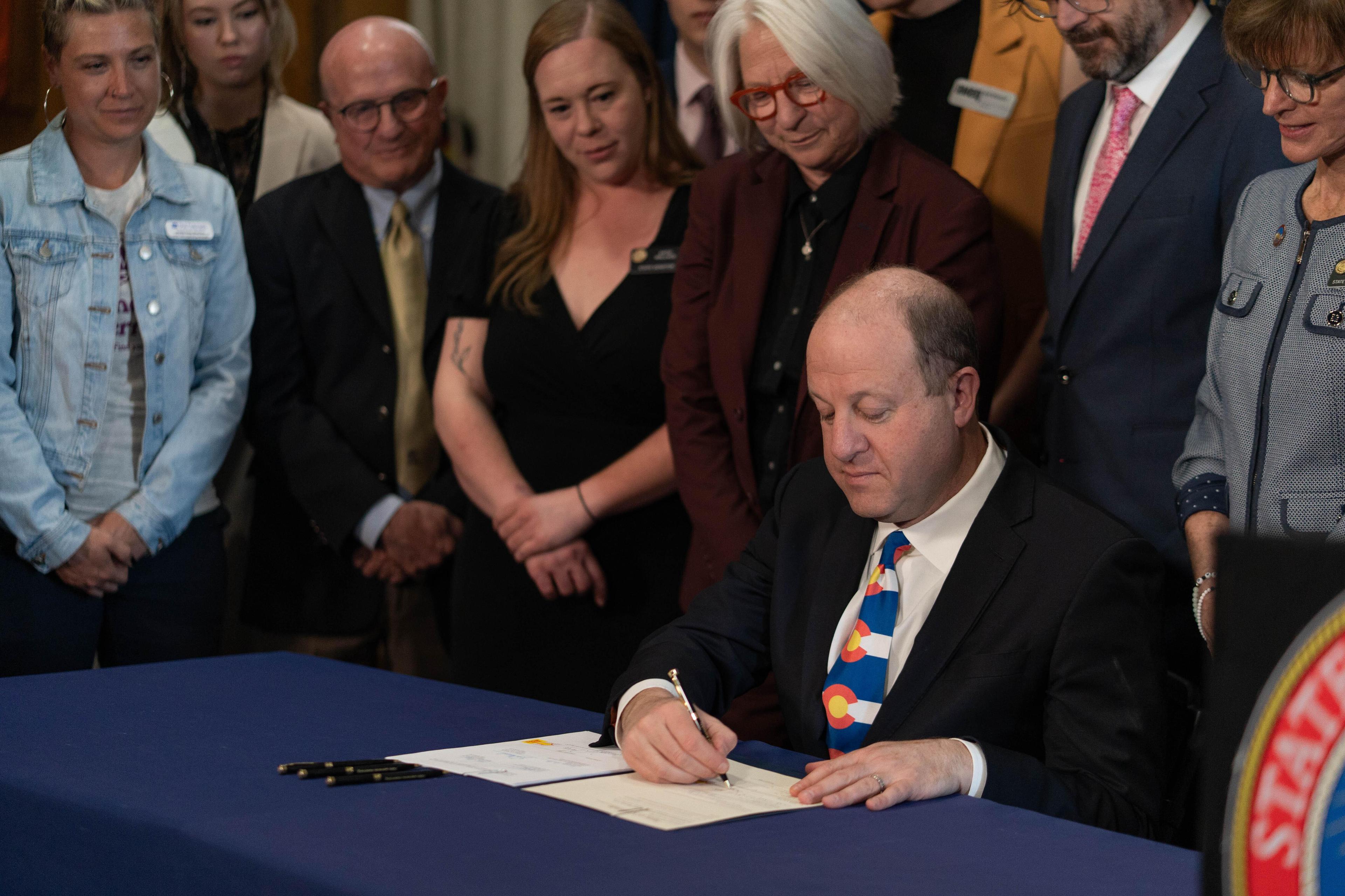
New York, Chicago and other cities with large passenger train networks have turnstiles or other physical barriers in your way to ensure riders pay before they hop on board. That’s not how it works in Denver.
Anyone can walk onto one of the Regional Transportation District’s trains without paying — if they’re willing to bet they won’t be caught by security.
“We rode a train to a baseball game. Most of the people that got on didn’t pay,” Bonnie Kean wrote to Colorado Wonders. “My feeling is that revenues might be sufficient if everyone paid.”

It’s a common question that we are asked a lot. Greg Anderson wondered “how many freeloaders use light rail, as we’ve seldom been checked.” Rest assured, Greg and Bonnie, that the honor system is alive and well. In 2018, 1.67 million riders were checked on RTD’s light rail system. Just 27,469, or about 1.6 percent, did not have a valid fare according to a staff report.
Denver’s honor system is similar to those in mid-sized U.S. cities like Minneapolis, Sacramento and Charlotte. Riders’ honesty is encouraged through random fare checks, performed by private security contractors and police officers — both RTD’s and those from local jurisdictions.
Checks happen more often on the commuter rail trains because they are staffed with two people — an operator and security officer — in order to comply with federal regulations on emergency evacuations. The evasion rate on the big trains was just 0.12 percent.
“I've never really been too concerned about fare evaders, because there's always going to be somebody jumping over the fence,” board member Claudia Folska said in a December meeting. “It's kind of the cost of doing business.”
First-time free-riders are given a warning and booted from the train. Repeat offenders can be fined up to $106.50 and suspended from the system. More than 3,200 citations were issued in 2018. They are technically traffic offenses, and if left unpaid, can lead to the loss of a driver’s license.
RTD has considered “hardening” its stations by adding turnstiles and gates, outgoing General Manager Dave Genova said at a September meeting. But that infrastructure could cost $175 million to build and $16.7 million to operate every year, according to a 2011 analysis.
“That not only has a huge capital expense, but then it has a huge labor expense because then we have to staff every location where we have turnstiles and gates,” Genova told the board.
And that infrastructure would be difficult to install in downtown Denver, where stations are on public sidewalks.
“We have an open system,” said Steve Martingano, deputy chief of RTD's police department. “It's a beautiful system of not looking at fencing and turnstiles and stuff of that nature. And in order to show that it's working, we just please ask you to pay.”
RTD estimates it lost about $850,000 to rail system fare evasion in 2018. That amounts to less than 1 percent of the $143 million in fare revenue collected that year, and a tiny amount of the agency’s overall revenue of $978 million that year.
Don’t relax on that though. It intends to add more officers to the light rail network. Although they performed some 1.67 million fare checks in 2018, that constitutes less than 7 percent of the 25.5 million rides that year. On the commuter rail side, 86 percent of the 7.6 million riders from January to September of 2019 were checked.
“We're trying to mimic that on the light rail system,” said Bob Grado, RTD’s chief of police. “We couldn't just do it all at once, so we've been transitioning slowly over a five-year period to increase that coverage.”
The ability for passengers to purchase tickets on their mobile phones poses a new wrinkle for fare checkers. Board member Judy Lubow said in December that she’s heard about scofflaws riding for free, only buying a ticket when they see an inspector on their car. The phenomena was even mentioned in a money diary on Refinery29, a lifestyle magazine.
“I will say that it is difficult to do that,” Grado told the board, explaining that the app shows when the fare was purchased. “If they know that that fare was purchased a minute ago, and they just bought the train, then we go ahead and cite them.”








